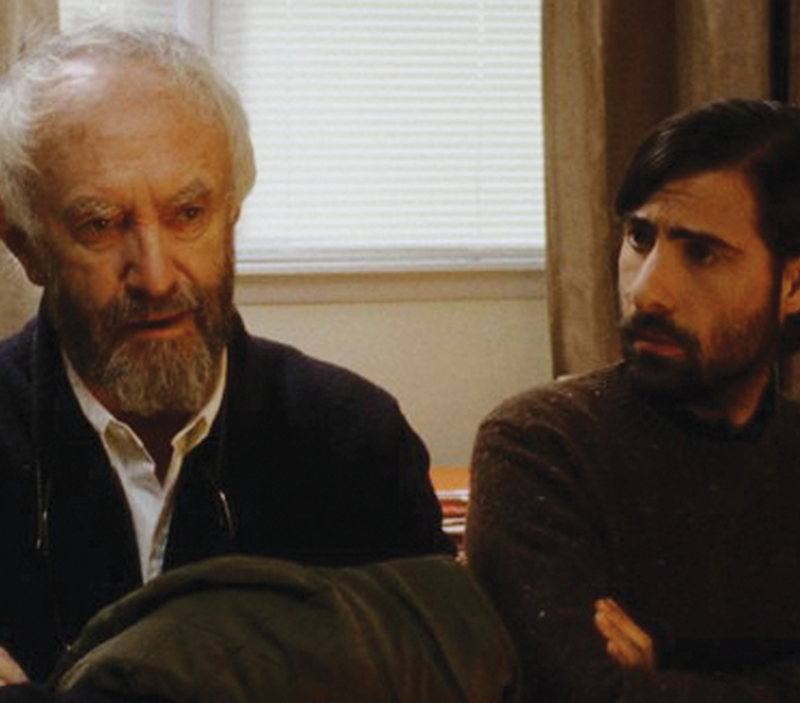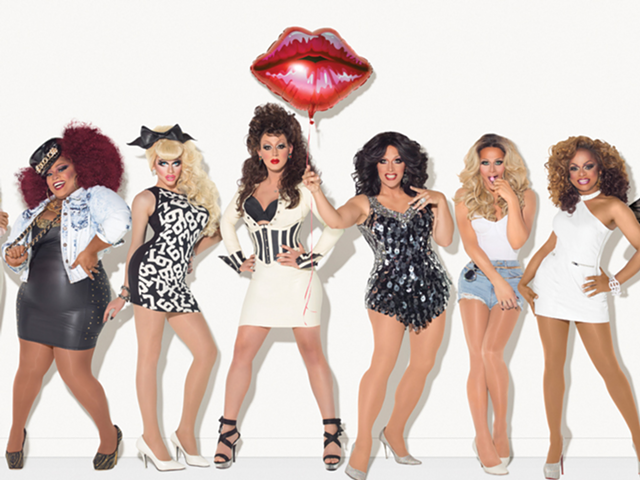I found myself tuning out a specious subset of the diversity debate regarding the most recent Academy Awards. We spent far too much time on the nominations themselves, which forced the argument into a rather obvious dead end. Yes, there were snubs — although, as I pointed out, not necessarily in the categories everyone else targeted, but let’s please put that debate to rest. We shouldn’t place so much attention on the end result. Instead, why not examine what can be done to change the situation in order to get the outcomes we want?
It might help to look into the prevailing story types that we encounter. A pair of new home entertainment releases focus on what is seemingly everyone’s favorite dilemma — white male anxiety. First up, Cinedigm and Tribeca Films team up for Listen Up Philip, a comedy from writer-director Alex Ross Perry (The Color Wheel) starring Jason Schwartzman, Elizabeth Moss, Jonathan Pryce and Krysten Ritter. Described by Variety as “sharp and darkly funny,” Listen Up occupies the same indie landscape as Wes Anderson and Noah Baumbach, dryly serving up the First World problems of contemporary white intellectuals.
The designated white male under siege is Philip Lewis Friedman (Schwartzman), an agitated writer struggling over how to handle the looming publication of his second novel while sensing that his city (New York) and his successful photographer girlfriend (Moss) are not supporting his artistic vision. In need of a change of pace, Philip accepts the generous invitation of Ike Zimmerman (Pryce), a beloved literary lion-in-winter to stay at his summer home, but it soon becomes apparent that Zimmerman made the offer in an attempt to prop up his own flagging ego. Each character wanders around in a fog of self-absorption with voiceovers from an omniscient narrator droning on, as if to bolster everyone’s self-confidence. The result is to place the angst front and center, to highlight it in quotation marks, while also creating a degree of sympathy for these perpetually miserable souls.
I wish I had it in me to feel something for Philip or his girlfriend Ashley or even Melanie Zimmerman (Ritter), the daughter of the thoroughly insufferable Ike. I have to admit I came closest to rooting for Ashley and Melanie, likely because they did the best they could, bashing their heads against the unbreakable mirrors Philip and Ike erected around themselves, and it is Ashley who figures out that the only way to break free is to close the door and turn out the lights on Philip, leaving him locked away in his own sad house of a head. What I couldn’t avoid was the invisibility of anyone who might have remotely seemed like an “other” in this world. At one point, during a scene featuring Philip teaching a creative writing course, he verbally smacks down a student (black male, no less) who dares to challenge his credibility as a teacher/instructor, and the move feels like one of the only clear victories for Philip as a character.
Every white male seeks to maintain his position as The Man, especially in the face of stiff challenges. This notion dominates the narrative of Magnolia Pictures’ Force Majeure, an actual favorite of mine from the most recent Toronto International Film Festival lineup. Swedish writer-director Ruben Östlund (Play) brilliantly exposed the mounting pressures on white male identity/supremacy in the experiences of Tomas (Johannes Kuhnke), a hardworking father on vacation in the French Alps with his family. During lunch on a deck facing the mountains, an avalanche threatens to overtake the resort, and Tomas’s split-second decision to abandon his family triggers a chain reaction that calls into sharp relief not only his masculinity but also the sense of authority he has as head of the household (and as a white male in the greater social order).
What Östlund presents amounts to a social experiment of sorts, a perceptive test for audiences to align themselves on one side or the other of this most curious argument about men and family dynamics. But there is a larger and far less obvious consideration. Why aren’t filmmakers — and while it may seem as if I am focusing on black filmmakers here, I am not — willing to raise similar questions about the complex state of black masculinity under siege, possibly juxtaposed against that of white males in American society?
I would much rather see such contemporary dilemmas explored in art houses and multiplexes than yet another round of biopics and historic period pieces. People of color live in the here and now and our angst and anxieties are just as confounding as those of the white males whose reflections dominate the field of vision.
CONTACT TT STERN-ENZI:
[email protected]






